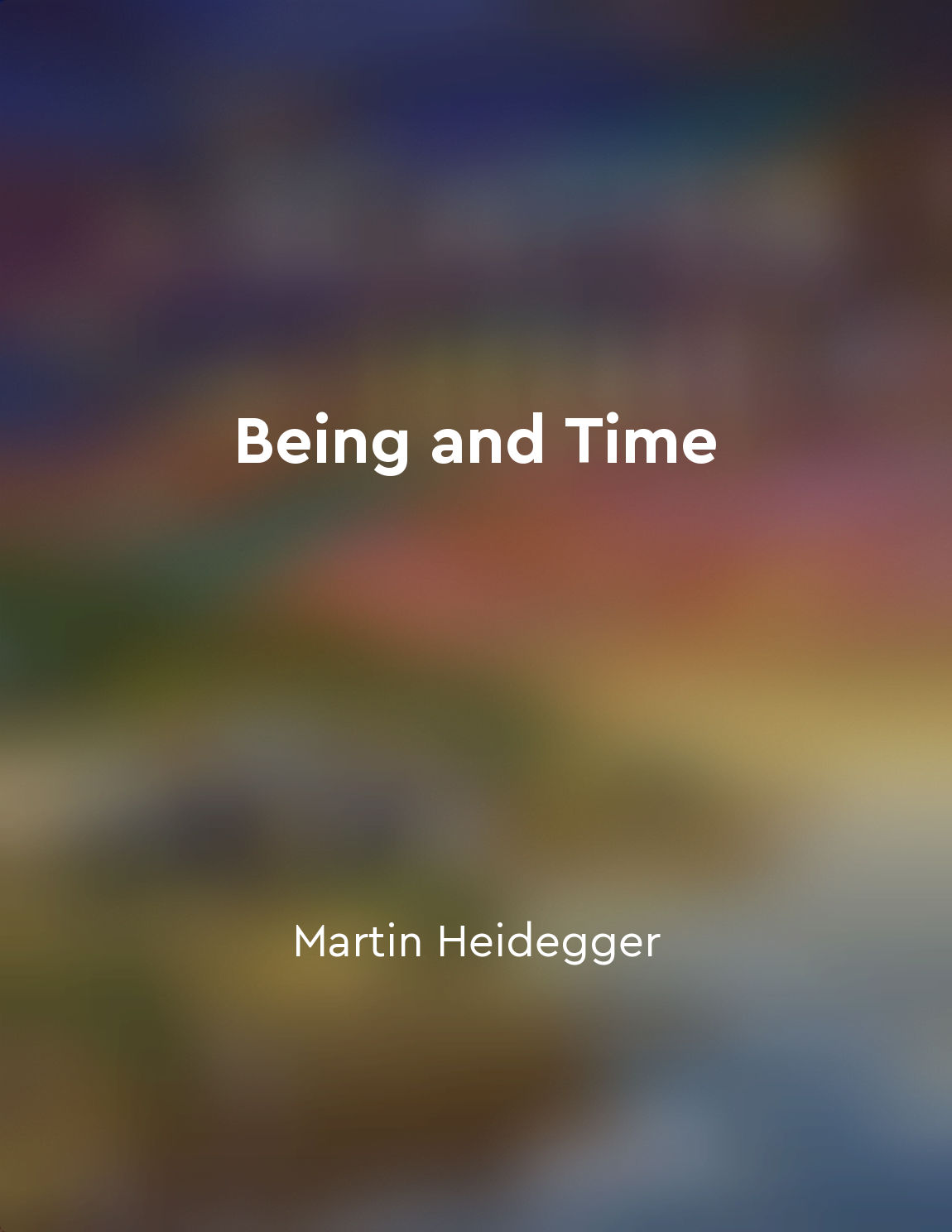Albert Camus focused on the concept of absurdity in life from "summary" of Humanly Possible by Sarah Bakewell
Albert Camus, in his philosophical musings, delved into the idea that life is inherently absurd. According to Camus, the universe is indifferent to human existence, devoid of any inherent meaning or purpose. This notion of absurdity can be seen as a confrontation between the human desire for significance and the cold, indifferent reality of the world. Camus believed that the absurdity of life arises from the inherent tension between the human need for meaning and the irrationality of the universe. This tension creates a sense of dissonance and alienation, leading individuals to grapple with feelings of anxiety, despair, and disillusionment. Despite this bleak outlook...Similar Posts

Temporality shapes our understanding of self
The self is not a static entity that exists in isolation. Rather, it is a dynamic and evolving entity that is fundamentally int...
Authenticity in one's beliefs fosters a sense of purpose
In a world devoid of any ultimate meaning or purpose, the notion of authenticity in one's beliefs takes on a heightened signifi...
The power of language can shape our reality
In these moments of introspection, I began to see the world around me in a new light. The power of language, I realized, was no...
